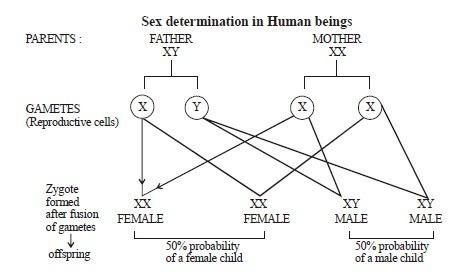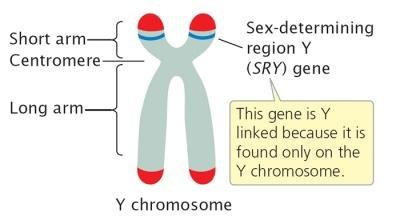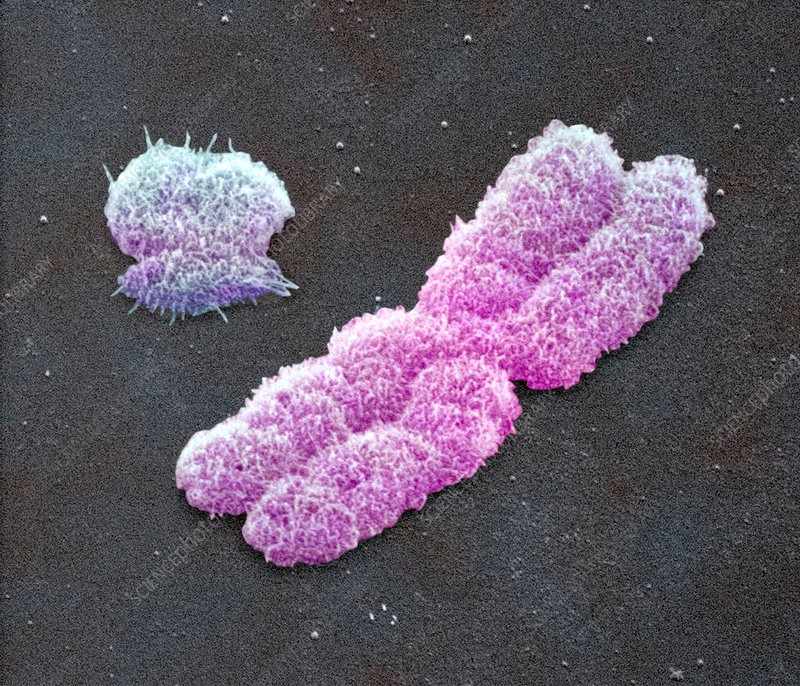In a groundbreaking milestone for genetic research, scientists have successfully deciphered the male sex chromosome, shedding light on the intricate mechanisms that govern our biological diversity. This remarkable achievement opens new avenues for understanding human genetics, evolution, and the development of various genetic disorders.
The male sex chromosome, commonly referred to as the Y chromosome, has long been a subject of fascination and curiosity within the scientific community. It plays a crucial role in determining an individual’s sex and carries genes responsible for male-specific traits and characteristics. However, due to its small size and complex structure, unraveling the mysteries encoded within the Y chromosome has proven to be a daunting challenge for researchers.
The recent breakthrough in decoding the Y chromosome was made possible through cutting-edge genomic sequencing techniques, advanced computational analysis, and international collaboration among geneticists and biologists. This collaborative effort spanned multiple research institutions and involved the expertise of scientists from diverse fields.
Key findings from this pioneering research include:

- Evolutionary Insights: By studying the Y chromosome across various species, scientists gained valuable insights into the evolutionary history of the male sex chromosome. This research revealed that the Y chromosome has undergone significant changes over millions of years, shedding light on the mechanisms of sex determination and the emergence of distinct sexes in different species.
- Genetic Diversity: The deciphering of the Y chromosome has enabled scientists to better understand the genetic diversity among human populations. This knowledge can be instrumental in studying the genetic basis of various diseases and conditions, including those with sex-specific characteristics.
- Disease Research: Unlocking the Y chromosome’s secrets has important implications for genetic disorders and diseases that are linked to this chromosome. Researchers can now explore potential therapeutic interventions for conditions related to Y chromosome mutations.
- Forensic Science: The Y chromosome is a valuable tool in forensic science for identifying male individuals and tracing paternal lineages. The improved understanding of its genetic markers enhances the accuracy and reliability of forensic DNA analysis.
- Assisted Reproduction: This research could also have implications for assisted reproduction techniques. A better understanding of the Y chromosome’s role in sex determination may lead to advancements in gender selection methods.
It’s important to note that while this breakthrough provides invaluable insights, it is just the beginning of a deeper exploration into the male sex chromosome. Further research is required to fully comprehend the intricacies of the Y chromosome’s functions and its implications for human health and biology.
, researchers are now delving into the specific genes and functions encoded within this crucial piece of genetic material. Here are some of the avenues of study that are currently being pursued:

1. Gene Functions: The deciphering of the Y chromosome has allowed scientists to identify and study the specific genes responsible for male traits and characteristics. This includes genes related to sexual development, hormone regulation, and fertility. Understanding these genes in detail could open up new avenues for addressing male-related health issues and reproductive challenges.
2. Male-Specific Diseases: With a clearer understanding of the Y chromosome, researchers are focusing on genetic disorders and diseases that primarily affect males. Conditions such as hemophilia and muscular dystrophy, which are linked to the X and Y chromosomes, are now under intense scrutiny. This research may lead to more effective treatments and therapies for these disorders.
3. Evolutionary Genomics: The study of the Y chromosome’s evolution continues to be a fascinating area of research. By comparing the Y chromosomes of different species, scientists are uncovering the ancient genetic history of males. This can provide insights into the evolutionary forces that have shaped our genetic diversity.
4. Personalized Medicine: As genetic research advances, personalized medicine is becoming increasingly feasible. The knowledge gained from decoding the Y chromosome can contribute to tailoring medical treatments to an individual’s genetic makeup, potentially leading to more effective and personalized healthcare.
5. Ethical Considerations: As with any significant genetic discovery, ethical considerations are paramount. Researchers are actively discussing the ethical implications of this newfound knowledge, particularly concerning genetic manipulation, gender selection, and privacy issues related to genetic information.
6. Gender and Identity: Understanding the genetic basis of sex determination also intersects with discussions on gender identity and expression. It highlights the complexity of biological sex and how it relates to gender, adding to ongoing societal conversations about gender diversity and inclusivity.
7. Environmental Factors: While genetics plays a significant role in human development, researchers are also examining the interplay between genetic factors encoded in the Y chromosome and environmental influences. This holistic approach can provide a more comprehensive understanding of how genes and the environment shape human health and development.
In summary, the deciphering of the male sex chromosome, the Y chromosome, has opened up a multitude of avenues for research and exploration. From the fundamentals of human biology to the treatment of genetic disorders and the broader implications for society, this breakthrough has far-reaching consequences. The collaborative efforts of scientists from around the world have paved the way for a deeper understanding of our genetic code and its impact on our lives, health, and future generations.
As research in this field continues to advance, we can anticipate even more exciting discoveries and applications that will revolutionize our understanding of genetics and its role in shaping the world around us.
In conclusion, the deciphering of the male sex chromosome represents a monumental achievement in genetics research. It not only expands our understanding of human genetics and evolution but also has far-reaching implications for fields such as medicine, forensics, and reproductive science. This collaborative effort showcases the power of science and technology in unraveling the mysteries of our genetic code and underscores the endless possibilities for future discoveries in the world of genetics.




































